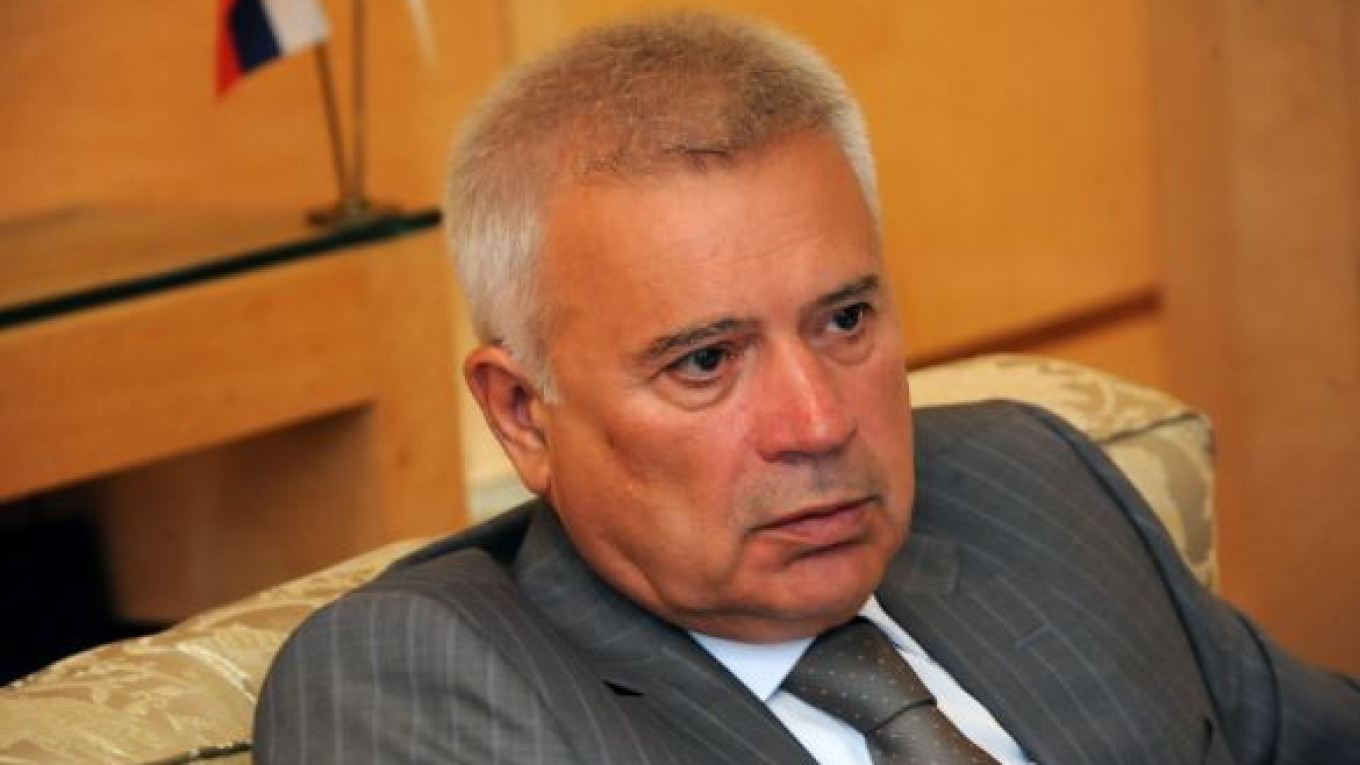LUKoil will launch its West Qurna-2 field in Iraq by the end of March next year, helping the company to more than double oil output abroad as it struggles with falling production at home.
Iraq, OPEC’s second-biggest oil producer, expects a robust return to growth next year as foreign companies at work in its giant southern oil fields push output toward the highest level ever.
Security remains a concern, however, highlighted this month when dozens of Shi’ite Muslim workers and tribesmen stormed a Schlumberger Ltd camp at the Rumaila North oil field after accusing a foreign security adviser of insulting their religion. LUKoil is not involved at that field.
“We do have once in a while, different, clearly minor, disruptions to construction work,” Andrei Gaidamaka, LUKoil’s vice president, told a conference call on Tuesday when asked about recent unrest.
“We are well protected by the oil police, but we try to make sure, to the maximum [that] we use negotiating tactics,” he said, saying that disruptions sometimes take time to resolve.
LUKoil, Russia’s second-largest oil producer, had planned to launch West Qurna-2, the world’s second-largest undeveloped field with recoverable oil reserves of about 14 billion barrels, around the turn of the year.
It aimed to reach production of 120,000 barrels per day, or bpd, in the first quarter of 2014, with output of 1.2 million bpd at its peak, but plans have yet to be finalized with the Iraq government.
Iraq has moved to restore calm at its southern oil fields. Baker Hughes Inc said this week that it was preparing to resume work after protests in Basra prompted the U.S. oil field services company to stop work at the Rumaila field.
“We definitely will start commercial production at the West Qurna field by the end of first quarter,” LUKoil’s Gaidamaka said. “In March-April we will have commercial production at the West Qurna-2 field on stream.”
He reiterated that the company plans to reach its initial production target next year. LUKoil regained the right to develop West Qurna-2 in 2009 after its initial concession was canceled following the fall of Saddam Hussein’s regime.
GazpromNeft, an oil arm of gas giant Gazprom, said this month that a number of issues including safety had led it to postpone initial production at its Badra oil field in Iraq until 2014.
FOCUS ON GROWTH
As a private sector company, LUKoil is banned from securing new offshore fields in Russian waters by recent laws, which reserve such prospects for state-controlled enterprises. LUKoil's largest shareholders are chief executive Vagit Alekperov and his deputy Leonid Fedun.
This leaves the company with no options but to develop resources that are hard to recover — so-called tight oil, which recently received tax breaks to encourage investment, acquire smaller Russian peers or grow abroad.
LUKoil's daily oil output fell 1.5 percent in 2012 year-on-year to 1.8 million bpd, of which some 110,000 bpd were extracted abroad, mainly from Kazakhstan.
"Our international production is set to more than double next year with the introduction of West Qurna-2," Gaidamaka said, after LUKoil posted a 12 percent drop in third-quarter net profit, blaming higher taxes and expenses.
Its net profit of $3.1 billion for the quarter was just shy of an analysts' consensus forecast. Quarterly sales, however, rose 3.5 percent from the year-earlier period to $36.7 billion, beating analysts' forecasts for a 2 percent rise.
"The absence of glitter in LUKoil's performance … is depressing investors," said Alexei Kokin, an analyst at UralSib brokerage in Moscow. LUKoil shares closed down 0.5 percent in Moscow, slightly underperforming a flat market.
A Message from The Moscow Times:
Dear readers,
We are facing unprecedented challenges. Russia's Prosecutor General's Office has designated The Moscow Times as an "undesirable" organization, criminalizing our work and putting our staff at risk of prosecution. This follows our earlier unjust labeling as a "foreign agent."
These actions are direct attempts to silence independent journalism in Russia. The authorities claim our work "discredits the decisions of the Russian leadership." We see things differently: we strive to provide accurate, unbiased reporting on Russia.
We, the journalists of The Moscow Times, refuse to be silenced. But to continue our work, we need your help.
Your support, no matter how small, makes a world of difference. If you can, please support us monthly starting from just $2. It's quick to set up, and every contribution makes a significant impact.
By supporting The Moscow Times, you're defending open, independent journalism in the face of repression. Thank you for standing with us.
Remind me later.


